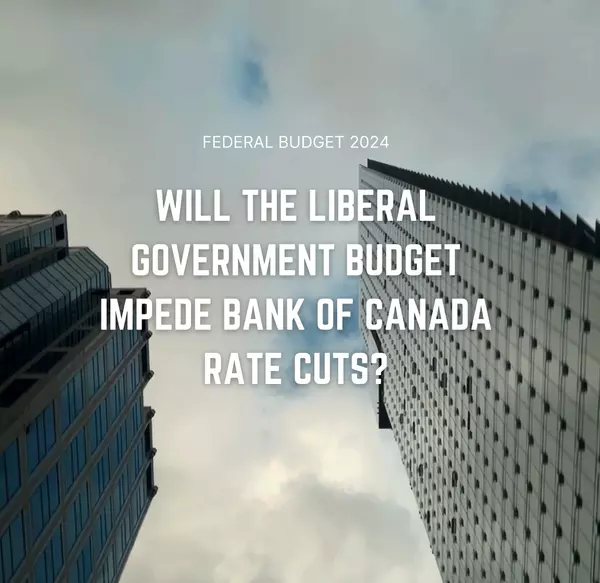Could the new Federal Budget impede the Bank of Canada anticipated rate cut?

The Liberal Federal government unveiled a 2024 Budget Statement with a significant increase in spending, surpassing the previous Fall Economic Statement. Spending is set to increase by $53 billion over the next 5 years.
In anticipation of this budget, former Liberal government minister and Former Bank of Canada governor David Dodge said it was set to be "the worst since 1982."
In a limited attempt to make offsets on the revenue side of the equation, the Trudeau government introduced new tax measures headlined by higher capital gains taxes on individuals and corporations. The budget proposes to increase capital gains inclusion rate from 50% to 66.67% for corporations and trusts, and from 50% to 66.7% on the portion of capital gains realized in the year that exceed $250,000 for individuals, for capital gains realized on or after June 25, 2024.
The positive argument is that $19 billion is being allocated to housing initiatives, although there has been debate as to th efficacy of these initiatives. The large increase in the Capital gains tax is meant to offset some of the increases in spending, but will it work. The increase in the tax is projected to generate approximately C$6.9 billion in the final months of the fiscal yaer 2023-2024, with an anticipated total of nearly $20 billion over the span of five years. The estimate is based on the assumption that investors will hurredly sell their assets, resulting in substantial tax revenue. "It's simple. $6.9 billion was a magical plug figure to avoid having to break Minister Freeland's promise to keep the defecit under C$40.1 billion this year in th wake of all of the heavy spending that has been announced at various photo ops of late" - Derek Holt is VP and head of Capital Markets economics for Scotiabank. What if investors simply hold off selling in anticipation of a new government and if the revenue doesn't come in? If Canada's economy worsens beyond the optimistic projections of the Budget over the next five years, deficits and debt will increase, leading to more payments to bondholders (as yields go up) rather than to important priorities.
Another relevant consideration is the jab at investment in Canada at a time when our economy is weakening. Canada will now penalize capital gains with higher taxes than most of the countries in the world. "This anti - competitive budget will be a future of ongoing Canadian dollar depreciation - which will only make us all poorese as a nation." Dave Rosenberg, Globe and Mail.
Oh yes! What about those anticipated rate cuts?
On Feb 1st Bank of Canada Governor Tiff Macklem said Prime Minister Justin Trudeau should avoid major spending increases in the next federal budget so they do not hinder the central bank's effort to bring down stubborn inflation. "If there are large spending increases...that could start getting in the way of getting inflation back down to target on the timeline we've laid out." Macklem.
That next BoC rate announcement is on June 5.
On
Categories
Recent Posts

After three rate cuts, is Canada's housing market finally making a comeback?

Could the new Federal Budget impede the Bank of Canada anticipated rate cut?

Purchasing a leasehold vs a strata freehold. What are the key differences?

Government Incentives for homeowners

Clyde Port Moody

Should I Downsize? My Experience - Anne Hermary

Should I buy a home in 2022?
You are our number one priority, and I am ready to help you meet your goals. I know you have a choice when choosing a real estate professional to be on your side, and thus, I aim always to exceed your expectations as often as possible when helping you buy or sell a home.
